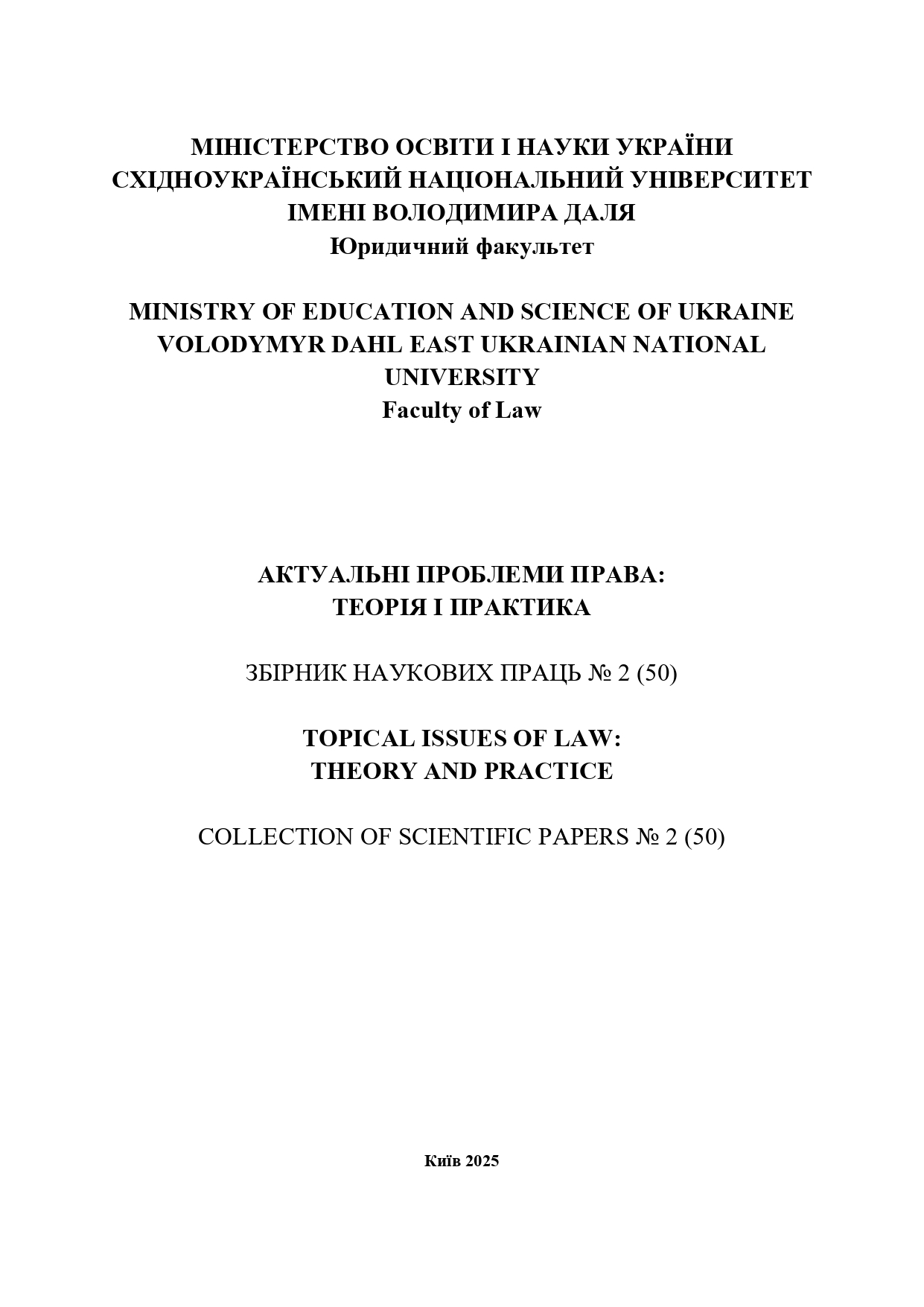PROBLEM ASPECTS OF OCCUPATIONAL SAFETY REGULATION IN REMOTE EMPLOYMENT: NATIONAL LEGISLATION AND EU EXPERIENCE
DOI:
https://doi.org/10.33216/2218-5461/2025-50-2-85-94Abstract
The article examines challenges of occupational
safety and health (OSH) in remote employment in
Ukraine under conditions of martial law. It is
emphasised that since 2022 remote work has become
a stable practice; however, provisions of the Labour
Code of Ukraine and the Law of Ukraine “On
Occupational Safety” effectively shift responsibility
for a safe workplace to the employee and do not
establish mechanisms for employer-led risk assessment and control. The neglect of psychosocial
factors (stress, burnout) creates a legal vacuum and a
gap with EU standards.
The author analyses domestic norms and legal
doctrine and compares them with the EU Framework
Agreement on Telework (2002) and its implementation
in EU Member States (France, Spain, Germany).
Examples of foreign solutions that enhance the safety
of remote workers are provided: the presumption of
the occupational nature of accidents occurring during
telework (France); mandatory risk assessment with
the possibility of self-assessment subject to the
worker’s consent (Spain); the extension of general
OSH rules to home workplaces and the distinction
between telework and mobile work (Germany).
The advantages of the European model—
prioritising employer duties—are outlined: systematic
risk management, provision of equipment and
coverage of related costs, the introduction of the
“right to disconnect”, and measures to prevent worker
isolation.
Based on comparative analysis, the article
concludes that the Ukrainian approach is limited: it
minimises employer involvement, does not regulate
the classification of accidents, and lacks tools for
preventing psychosocial risks. It is established that
current legislation requires harmonisation with EU
standards.
The author substantiates the expediency of:
enshrining the employer’s duty to ensure safe working
conditions regardless of the place of work; introducing
initial and periodic risk assessment (including selfassessment
checklists); and improving the procedure
for investigating accidents, taking into account
European approaches, inter alia.
The conclusions stress that implementing the
proposed changes will reduce injuries and burnout,
enhance legal certainty for business, and promote the European integration of Ukraine’s labour legislation.
Keywords: remote work; telework; occupational safety and health; employment contract; international standards; labour legislation; labour relations; martial law; harmonisation.

